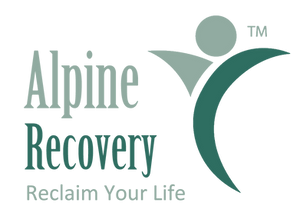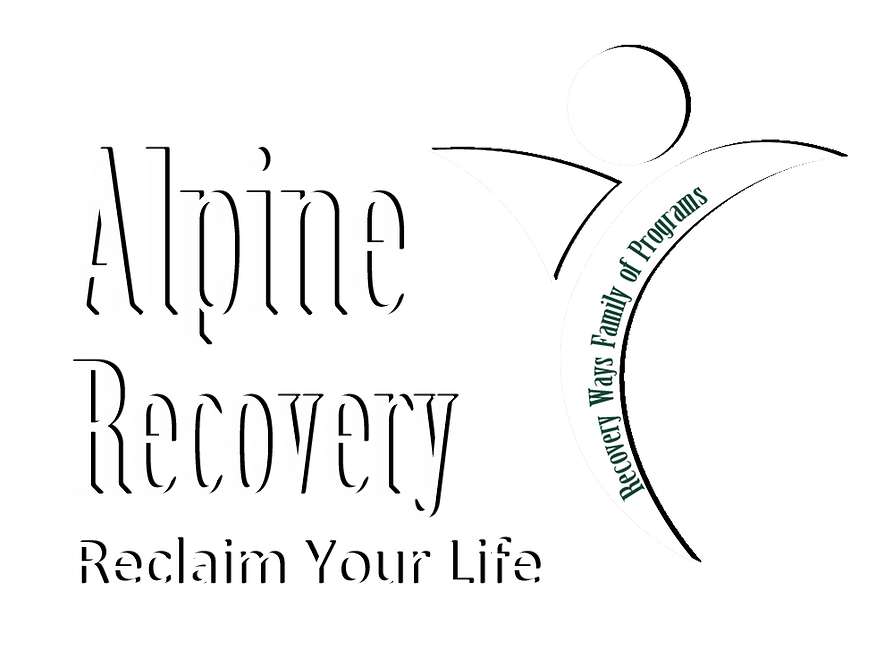
Exploring the Essence of Inpatient Drug Treatment
Inpatient drug treatment is a structured and immersive approach designed to address severe substance use disorders. In Washington, centers like Alpine Recovery play a crucial role in supporting individuals through their recovery journey. This model involves residing in a facility, providing a stable environment free from daily distractions and temptations. Residents receive round-the-clock care from medical professionals and therapists, enhancing the possibility of successful recovery.
What sets inpatient drug treatment apart is its comprehensive nature. Facilities offer a blend of therapies, including individual counseling, group therapy, and holistic options. These elements work together to support not just sobriety but overall well-being. The controlled environment allows clients to focus solely on recovery, away from potential triggers and negative influences.
The Benefits of Choosing a Serene Location
The setting of an inpatient facility can significantly impact the recovery process. Alpine Recovery, nestled in a tranquil location in Washington, serves as a haven for individuals seeking refuge from the chaos of addiction. The calming surroundings help in reducing stress and anxiety, fostering a conducive environment for healing.
Natural settings can also promote physical activity, such as walking trails or outdoor exercises, which are integral to holistic recovery. These environments encourage reflection and mindfulness practice, both crucial elements in managing substance use disorders. Engaging with nature often helps residents find peace, accelerating emotional and psychological healing.
During the recovery process, the connection between physical space and mental health becomes apparent. A serene location offers a retreat-like experience, promoting relaxation and aiding in detoxification and therapy sessions.
Individualized Care for Every Client
Tailoring Treatment Plans
Alpine Recovery emphasizes personalized treatment plans to meet the unique needs of each client. Recognizing that every individual’s journey with addiction is different, the facility’s professional team carefully assesses and develops customized plans that align with personal goals and challenges.
This individualized approach ensures that clients receive the most effective therapies and interventions, whether it be cognitive-behavioral therapy, trauma-informed care, or other therapeutic modalities. Such targeted care results in more meaningful progress and higher success rates.
Holistic Treatment Options
In addition to conventional therapy, holistic treatment options at Alpine Recovery focus on healing the mind, body, and spirit. Mindfulness practices, relaxation techniques, and nutritional counseling are integrated into the recovery process. These holistic methods aim to rebuild physical and emotional health, often neglected during substance misuse.
The holistic emphasis not only supports sobriety but also empowers clients to adopt healthier lifestyles, enhancing their quality of life post-recovery.
Embracing Community and Peer Support
Community and peer support are cornerstones of the recovery process at Alpine Recovery. The facility fosters a strong sense of community, encouraging clients to connect with others who share similar experiences. These interactions often create lasting bonds and networks that offer support long after treatment concludes.
The Role of Support Groups
Support groups are integral, providing safe spaces for sharing stories, challenges, and triumphs. Hearing others’ experiences can be incredibly validating and inspiring, offering reassurance that clients are not alone in their struggles. This peer-driven support often reinforces the belief that recovery is possible.
Engaging Families
Alpine Recovery also actively involves families in the healing process. Family counseling sessions address the dynamics impacted by addiction, fostering understanding and rebuilding trust. These sessions help families develop supportive roles, essential for maintaining recovery at home.
Detoxification: A Crucial First Step
Detoxification forms a critical component of inpatient drug treatment washington, helping individuals safely manage withdrawal symptoms and prepare for further therapy. Alpine Recovery ensures that detox is conducted under medical supervision to provide comfort and reduce potential health risks.
By addressing the physical aspects of addiction early, clients can focus more fully on therapeutic work without the physical discomfort of withdrawal. Furthermore, detox sets the foundation for effective counseling and holistic treatment, enabling clients to engage more deeply in their recovery plans.
Comprehensive Therapy Options
Individual Counseling
Individual counseling sessions allow clients to explore personal challenges and underlying issues contributing to substance use. Licensed therapists guide these sessions, helping clients develop coping strategies and emotional resilience.
Group Therapy
Group therapy provides a platform for clients to share experiences and learn from one another. These sessions often enhance communication skills and promote collective problem-solving, fostering a sense of solidarity among participants.
Family Therapy
Family therapy addresses the broader impact of addiction, helping repair relationships and improve family dynamics. These sessions are crucial for creating a supportive home environment that encourages long-term sobriety.
Aftercare Planning for Sustained Recovery
Effective aftercare planning is pivotal for maintaining sobriety following inpatient drug treatment washington. Alpine Recovery’s commitment extends beyond immediate treatment, preparing clients for life outside the facility. This plan typically includes referral to outpatient services, ongoing therapy sessions, and continued participation in support groups.
Developing a robust aftercare plan ensures that clients have the necessary tools and support networks to uphold their recovery journey. This proactive approach minimizes the risk of relapse, promoting sustained well-being and recovery success.
Navigating the Financial Aspects of Treatment
The financial aspect of inpatient drug treatment can be a concern for many seeking help. Alpine Recovery aims to alleviate this stress by offering guidance on various payment options and insurance coverages. The facility’s staff can assist in navigating insurance policies to maximize benefits and reduce out-of-pocket costs.
In addition, Alpine Recovery understands the importance of accessibility, offering sliding scale fees and financial aid programs for qualified individuals, ensuring that everyone has access to quality care regardless of their financial situation.
Measuring Success in Recovery
Success in recovery is not solely about achieving sobriety but encompasses holistic personal growth and life satisfaction. At Alpine Recovery, success is measured through improved mental health, strengthened relationships, and the development of a healthy lifestyle.
Regular assessments and feedback mechanisms help track progress, allowing for adjustments in treatment plans to better meet the evolving needs of clients. This continual adaptation ensures that clients remain on a path toward long-lasting recovery.
Why Choose Alpine Recovery?
Alpine Recovery stands out among inpatient drug treatment options in Washington due to its comprehensive, person-centered approach. The commitment to individualized care, holistic treatment, and community involvement sets it apart, creating a nurturing environment for those seeking recovery.
With experienced professionals and a serene setting, Alpine Recovery offers clients a unique opportunity to heal and rebuild their lives, making it a preferred choice for many embarking on their recovery journey.

How long can you stay in inpatient rehab?
The duration of stay in an inpatient rehab like Alpine Recovery can vary based on individual needs and treatment plans. Typically, programs range from 28 days to several months. The length of treatment is determined by factors such as the severity of addiction, the presence of co-occurring mental health disorders, and each person’s progress in therapy. At Alpine Recovery, we believe in a personalized approach to healing, allowing residents to stay as long as necessary to achieve a sustainable recovery. Our expert staff works closely with clients to evaluate their progress and adjust treatment plans accordingly. Have you considered what duration might work best for your recovery goals?
How much does rehab cost in Washington state?
The cost of rehab in Washington State can fluctuate based on the type and duration of treatment, as well as the facility’s amenities and services. At Alpine Recovery, we strive to make treatment accessible to everyone by offering various financial options, including assistance with insurance navigation and sliding scale fees. On average, costs can range from a few thousand to tens of thousands of dollars for an inpatient program. However, the investment in health and future well-being often outweighs the financial expenses. It’s important to explore insurance coverage and speak with our admissions team to find a plan that suits your financial situation. What questions do you have about financing your recovery journey?
How long do people get inpatient treatment?
While the exact length can differ, most people engage in inpatient treatment for periods ranging from 30 to 90 days. At Alpine Recovery, we emphasize a flexible approach tailored to meet the individual needs of each client. The goal is to provide an environment where a person can attain the necessary skills and strength to transition to a supportive, sober life. For some, a longer stay may be beneficial for addressing deep-rooted issues or when dealing with chronic addiction. Our team evaluates progress regularly to ensure that clients are receiving the optimal duration of care for their recovery. How might this personalized approach benefit your recovery process?
Is inpatient the same as rehab?
Inpatient treatment is indeed a form of rehab, characterized by living at the facility where intensive therapy is provided. It offers a structured environment designed to eliminate the distractions and temptations of everyday life, allowing clients to focus entirely on recovery. Alpine Recovery’s inpatient program integrates medical detox, therapy, and holistic approaches to foster comprehensive healing. This immersive approach is particularly effective for those with severe substance use disorders. In contrast, outpatient rehab allows individuals to live at home while attending scheduled treatment sessions. Each type of rehab has its place, depending on the personal circumstances and needs of the client. Have you thought about which rehab setting might be most beneficial for you or a loved one?
What are the benefits of a serene location for inpatient treatment?
Choosing a facility like Alpine Recovery, set in a tranquil location, brings distinct advantages to the recovery process. A serene environment can significantly reduce stress and promote relaxation, essential for mental clarity and emotional healing. Nature often encourages self-reflection, allowing individuals to connect deeply with their journey and foster mindfulness. Additionally, these settings typically offer opportunities for physical activities such as walking or yoga, which contribute to holistic recovery. The peace and calm of the surroundings can also aid in the effectiveness of detox and therapy sessions. Would you find such a peaceful setting helpful in your journey to recovery?
Resources
- Substance Abuse and Mental Health Services Administration (SAMHSA) – SAMHSA is a government agency that leads public health efforts to advance the behavioral health of the nation.
- National Institute on Drug Abuse (NIDA) – NIDA is a research institute that aims to advance science on the causes and consequences of drug use and addiction.
- National Institutes of Health (NIH) – NIH is the nation’s medical research agency, supporting scientific studies to improve health and save lives.
- American Psychiatric Association (APA) – APA is a professional organization representing psychiatrists in the United States, working to ensure humane care and effective treatment for all persons with mental disorders.
- National Alliance on Mental Illness (NAMI) – NAMI is a grassroots mental health organization dedicated to building better lives for the millions of Americans affected by mental illness.


